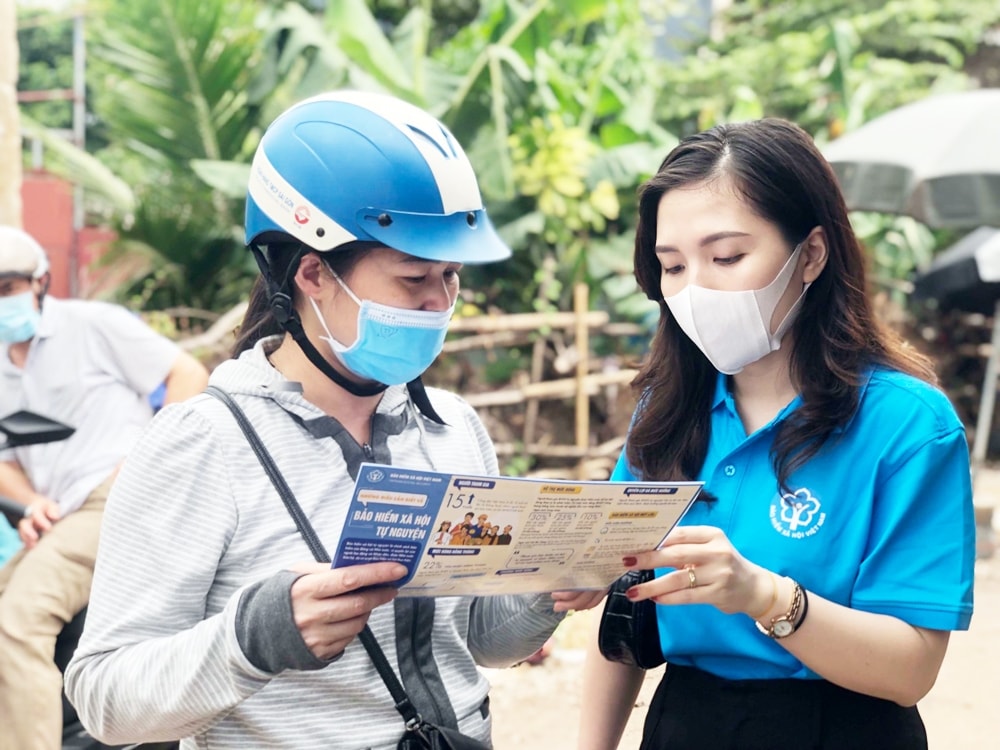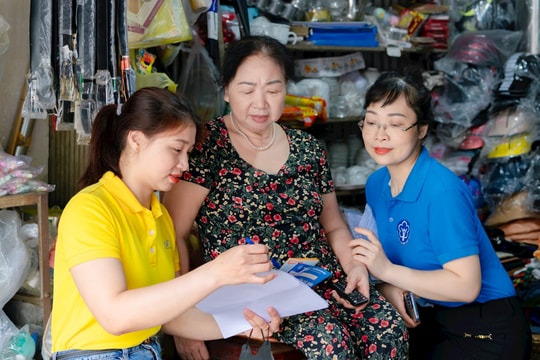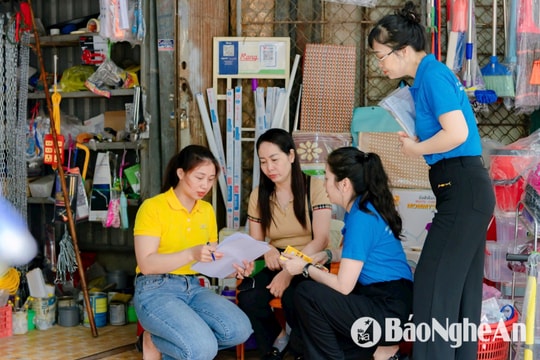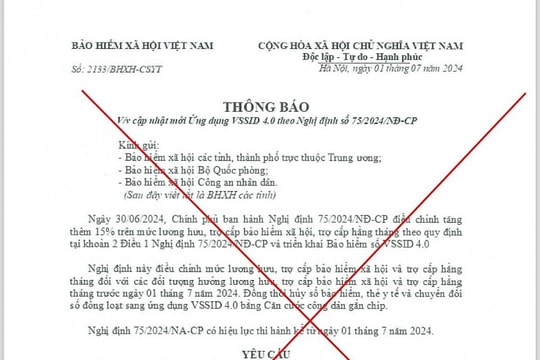New benefits of voluntary social insurance from July 1, 2025, people must know to avoid being disadvantaged
Since July 1, 2025, voluntary social insurance (SI) in Vietnam has undergone significant changes. Bringing more practical benefits to freelance workers.
Decree 159/2025/ND-CP, effective from July 1, 2025, is considered an important step in perfecting the social security system in Vietnam.
Previously, Decree 134/2015/ND-CP, which was a guiding document on voluntary social insurance, had many limitations, especially the lack of clear regulations on changing contribution levels and refunding contributions. These shortcomings made it difficult for participants to manage their finances and maximize the benefits of voluntary social insurance.

The new Decree not only overcomes these limitations but also adds unprecedented benefits, making voluntary social insurance a more attractive option for people, especially those who are self-employed, self-employed, or work in the informal sector.
Key changes in voluntary social insurance
1. Flexibility in choosing and changing income levels
According to Article 4 of Decree 159/2025/ND-CP, voluntary social insurance participants can now freely choose their income level as a basis for insurance contributions, and are allowed to change this income level when necessary. This provision provides flexibility, helping participants adjust their contributions in accordance with their personal financial situation, thereby encouraging more people to participate.
For example, a self-employed person with an unstable income can choose a low contribution rate during difficult months and increase the contribution rate when finances are more stable. This overcomes the limitation of Decree 134/2015/ND-CP, where changes in contribution rates are not clearly regulated, causing difficulties for participants.
2. Diverse contribution methods
Decree 159/2025/ND-CP expands the methods of voluntary social insurance payment, bringing convenience and suitability to many subjects. According to Articles 6 and 8, participants can choose the following payment methods:
- Close monthly: Suitable for people with regular income.
- Closed 3 times/month: Reduced payment frequency for those who want to manage their finances quarterly.
- Pay every 6 months: Suitable for people with seasonal or unstable income.
- Pay every 12 months: Convenient for those who want to pay once for the whole year.
- Close once: Can contribute for up to the next 5 years or for the remaining years if the participant is age eligible for pension.
These methods help participants plan their long-term finances effectively, especially suitable for those with variable incomes or who want to optimize contributions to qualify for retirement early.
3. Regulations on contribution refund
An important new point is the regulation on refunding voluntary social insurance contributions, clearly stated in Clause 1, Article 8 of Decree 159/2025/ND-CP. Participants can be refunded in the following cases:
- Switch to compulsory social insurance participation (for example, when freelancers find stable jobs with compulsory social insurance participation).
- Receive social insurance one time according to regulations.
- Death or declaration of death by a court.
- Eligible for pension.
This provision helps participants manage their contributions more flexibly, while minimizing financial risks when circumstances change. Previously, Decree 134/2015/ND-CP did not have specific instructions on refunds, leading to many cases where participants were disadvantaged.
4. New benefit: Monthly allowance
One of the most prominent benefits of Decree 159/2025/ND-CP is the regulation on monthly allowances for voluntary social insurance participants. Specifically, if a participant has paid social insurance for 15 years or more but is not eligible for a pension, they will receive a monthly allowance instead of only receiving social insurance once as before. This regulation ensures that participants have a more stable source of income during retirement, helping to improve their quality of life.
5. Retirement and death benefits
In addition to monthly benefits, voluntary social insurance also provides retirement benefits and death benefits in case the participant is no longer able to work. These benefits not only protect the participant but also support their family in difficult situations, such as the loss of a loved one or the loss of the ability to work.
Compare with old regulations
To better understand the improvements of Decree 159/2025/ND-CP, the table below compares key points with Decree 134/2015/ND-CP:
| Criteria | Decree 134/2015/ND-CP | Decree 159/2025/ND-CP |
|---|---|---|
| Select income level | There is no clear regulation on changing income levels. | Flexibility to choose and change income levels (Article 4). |
| Closing method | Limited, mostly paid monthly or one time. | Variety: monthly, 3 months, 6 months, 12 months, or one time for up to 5 years (Article 6, Article 8). |
| Contribution return | There are no specific regulations. | Refund in specific cases (Article 8, paragraph 1). |
| Subsidy for those who have paid for 15 years or more | Receive social insurance one time. | Receive monthly benefits if not eligible for pension. |
Decree 159/2025/ND-CP not only provides flexibility in participating in voluntary social insurance but also enhances the rights of participants, helping them protect their future more effectively. In particular, the new regulations encourage freelancers, sole traders, or those working in the informal sector to participate in social insurance, thereby expanding the scope of protection of the social security system.

To make the most of these benefits, people need to:
- Carefully study Decree 159/2025/ND-CP and related regulations.
- Contact the nearest Social Security agency for advice on contribution levels, payment methods, and benefits.
- Plan your finances long term to ensure you have enough time to contribute, especially for monthly benefits or pensions.
With these changes, voluntary social insurance becomes an important tool to help people, especially those not subject to compulsory social insurance, build a safer and more stable future.



![[Infographics] BHXH Nghệ An: Nỗ lực triển khai Đề án 06 đem lại nhiều tiện ích cho người dân, doanh nghiệp [Infographics] BHXH Nghệ An: Nỗ lực triển khai Đề án 06 đem lại nhiều tiện ích cho người dân, doanh nghiệp](https://bna.1cdn.vn/thumbs/540x360/2024/12/19/uploaded-thanhthuybna-2024_03_30-_bna-nguoi-dan-co-the-tra-cuu-thong-tin-bhxh-ngay-tai-bo-phan-1-cua-cua-bhxh-tinh-anh-dinh-tuyen-7433.jpg)


